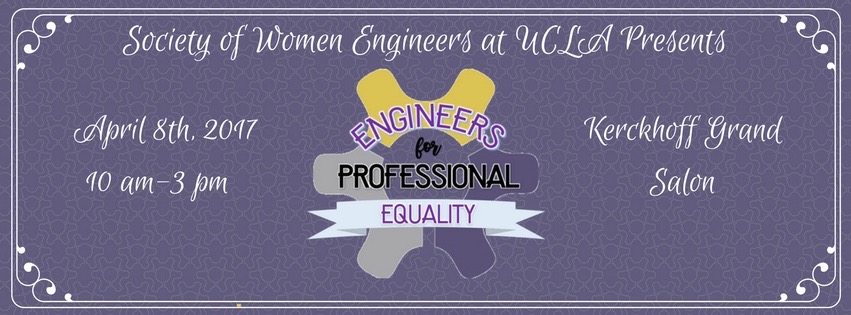Engineers for Professional Equality Conference

Image courtesy of Society of Women Engineers at UCLA
The Society of Women Engineers at UCLA (SWE) hosted their third annual Engineers for Professional Equality Conference (EPEC) on Saturday, April 8 in the Kerckhoff Grand Salon. The conference consisted of a panel and a set of workshops, and was intended to let engineering students learn from the experiences of engineers in the workforce.
The day started with a panel of seven women engineers, representing seven different companies and a range of fields. A question that panelists were asked was: “What microaggressions have you experienced because of your identity, that others might not have noticed?” Melissa Yee shared that she sometimes feels angry when co-workers call her names such as “honey” or “sweetie,” because she feels that they are belittling her. Allison Faris explained that, when she is in a similar situation, she likes to point out the sexist double-standard of pet names: they are almost always applied solely to women.
Panelists were also asked how they believed their unique backgrounds have helped their careers as engineers. Bijal Mehta answered that she thought growing up in a diverse area has helped her tremendously with business relations. She noted that she often has to work on projects with engineers from different countries, and recognizing that different countries have different social norms has helped her navigate those relationships in a more tactful and respectful manner as compared to the actions of her co-workers.
The panel was followed by workshops, including one entitled “I’m Listening: Supporting diversity in the workplace and beyond.” The workshop leader, Kritika Iyer, broke down the concepts of intersectionality and privilege. She explained very few people have privilege in every aspect of their identity and that very few people are disadvantaged by every aspect of their identity. For example, a dark-skinned person of color may also come from a middle class family. She then related these ideas to being a good ally by explaining that allies will often not have the exact same experiences of the friend or co-worker they want to help. Therefore, it is more constructive to listen to their experiences, validate their feelings, and keep the focus off of yourself.
For more information on SWE, find them on Facebook here.




